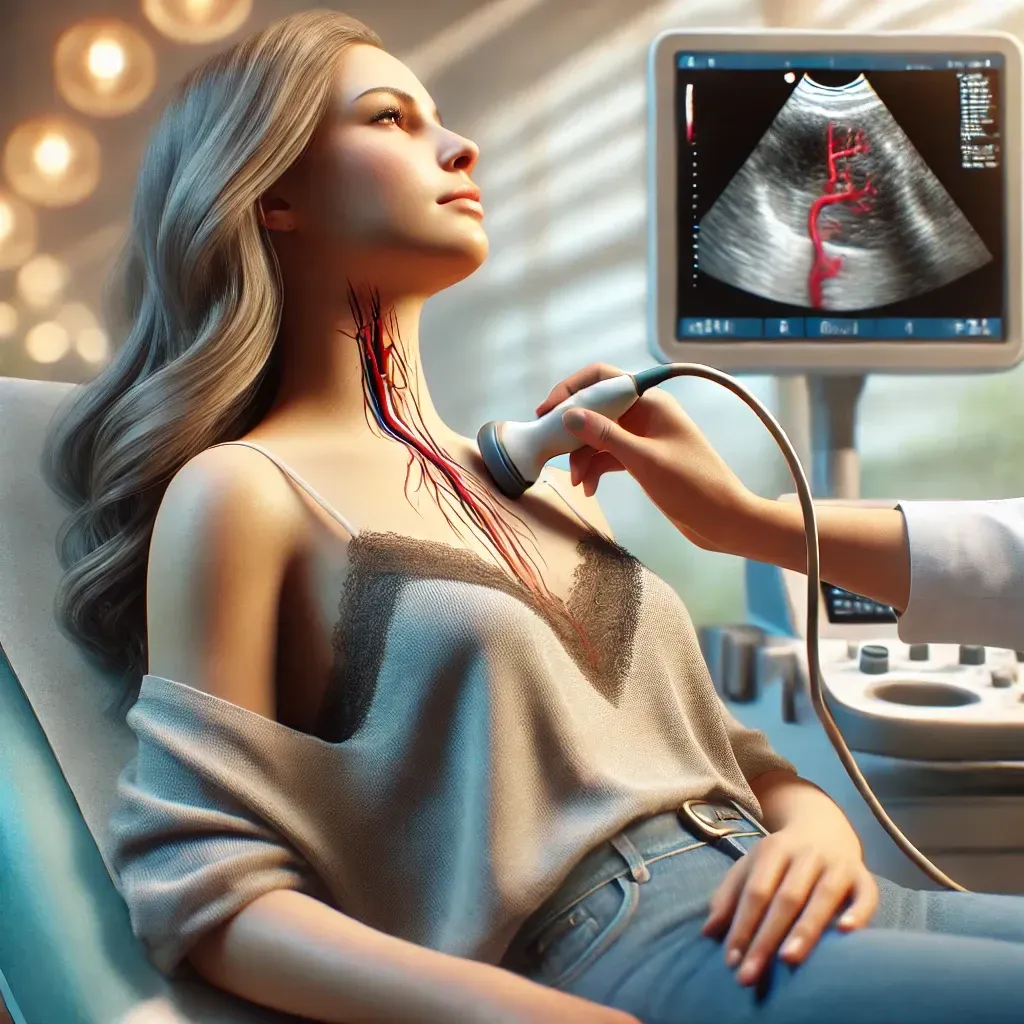
Seeing Is Believing: The Benefits of Ultrasound for Patients and Providers

The Sound of Health: How Ultrasounds Can Detect Early Signs of Cardiovascular Issues in Women
The Sound of Health: How Ultrasounds Can Detect Early Signs of Cardiovascular Issues in Women
At Atlanta Ultrasound, we believe in the power of knowledge and the importance of staying proactive about your health. Women’s health is about more than reproductive care; it’s also about heart health. Did you know that heart disease is the leading cause of death for women in the U.S.? Often, the symptoms can be subtle, but the good news is that advanced ultrasound technology can help detect cardiovascular issues early on.

Why Ultrasound for Heart Health?
When you think of ultrasounds, pregnancy might be the first thing that comes to mind. But ultrasounds play a vital role in detecting other health conditions, including heart and vascular health. By using sound waves, an ultrasound creates detailed images of your blood vessels and heart, helping doctors spot potential issues before they become serious.
How Can Ultrasounds Help Detect Cardiovascular Problems?
1. Carotid Ultrasound: Checking the Health of Your Arteries
One of the most effective uses of ultrasound in cardiovascular care is the carotid ultrasound. The carotid arteries are located on each side of your neck and supply blood to your brain. If these arteries become clogged or narrowed, it can lead to a stroke. A carotid ultrasound can detect plaque buildup or narrowing in the arteries, allowing for early intervention before a stroke occurs.

2. Detecting Atherosclerosis Early
Atherosclerosis is a condition where plaque builds up inside your arteries, restricting blood flow. It often develops slowly over time and doesn’t show symptoms until it’s quite advanced. A vascular ultrasound can help detect this buildup early, even before you notice any symptoms, giving you a head start on making lifestyle changes or starting treatment.
3. Monitoring Blood Flow and Detecting Clots
Ultrasounds can also help monitor the flow of blood in your veins and arteries. This is crucial in detecting any blockages or clots that may not show obvious symptoms but could lead to serious issues, like deep vein thrombosis (DVT) or a pulmonary embolism.

Why Early Detection Matters for Women
Heart disease and stroke are often thought of as men’s health issues, but they affect women just as much—if not more. Women tend to develop cardiovascular issues later in life, often after menopause, and their symptoms can be different from men’s. For example, instead of chest pain, women might experience jaw pain, nausea, or extreme fatigue. This can make it harder to detect cardiovascular issues in women.
That’s why it’s so important to stay on top of your heart health and have regular screenings, especially if you have risk factors like high blood pressure, diabetes, or a family history of heart disease.
What to Expect During a Cardiovascular Ultrasound
A cardiovascular ultrasound is quick, painless, and non-invasive. During the exam, you’ll lie down while a technician applies gel to your skin and moves a small device called a transducer over the area being examined. The transducer sends sound waves into your body, and these waves create images of your blood vessels and heart on a screen.
You’ll be able to resume your normal activities right after the exam. The results will be reviewed by your doctor, who will discuss any findings and next steps with you.
Taking Control of Your Heart Health
At Atlanta Ultrasound, we’re here to help you take control of your health with cutting-edge technology and compassionate care. Regular ultrasound screenings can provide peace of mind and early detection of issues that might otherwise go unnoticed. By keeping a close watch on your heart and blood vessels, you’re taking an important step toward a healthier, longer life.
If you’re concerned about your cardiovascular health, or if you just want to stay proactive, consider scheduling a carotid or vascular ultrasound with us. Let’s make heart health a priority together.
